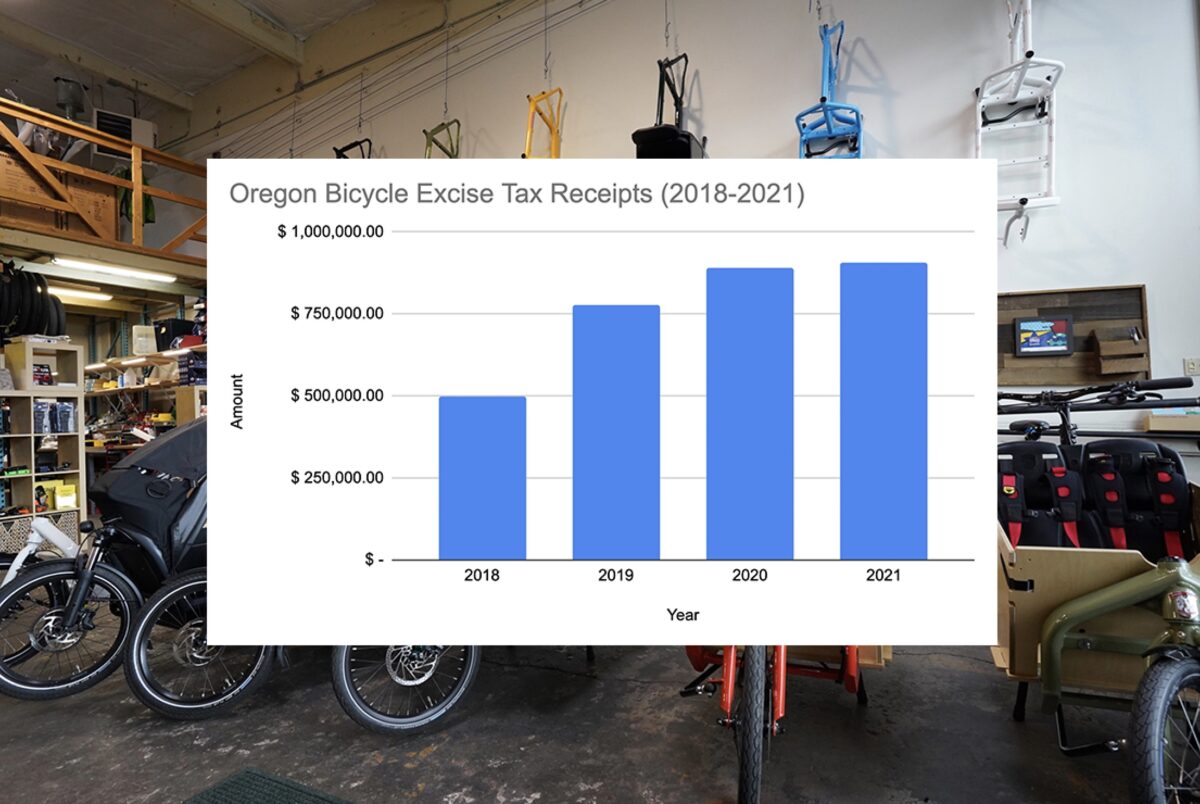
The bike boom is very real in Oregon and the latest way to prove it is to check in on the amount of money collected by the state for the bicycle excise tax. The $15 tax raised nearly $1 million last year.
Oregon’s bike tax passed in 2017 by legislators who thought it would give bicycle users “skin in the game” (gross) and tamp down anger from drivers who were being asked to pay a range of new automobile-related fees as part of the landmark HB 2017 transportation bill. Some advocates, including Portland Congressman Earl Blumenauer, supported the idea based on a notion that it showed cycling had officially earned a seat at the grown-ups table.
While it started off slowly, the revenue is now close to the $1.2 million per year figure state officials estimated it would raise and nearly double the amount raised in 2018, the first full calendar year it was collected.
According to figures from the Oregon Department of Revenue shared with BikePortland this week, the tax raised $498,670 in 2018. In 2021 the amount was $908,156.
Advertisement
One way lawmakers softened the blow of this tax was to tie the proceeds directly to infrastructure projects that make bicycling better. Under ORS 320.440, all bike tax revenue goes into the Multimodal Active Transportation Fund where it’s combined with a portion of the vehicle dealer privilege tax (also passed in 2017, this is a 0.5% tax on the retail price of any taxable car or truck sold in Oregon), and Transportation Operating Fund revenues (which are unrefunded gas taxes for non-road use fuel, such as for lawnmowers). From there the money goes toward the Community Paths program where it’s doled out in grants, “dedicated to helping communities create and maintain connections through multiuse paths”.
The bike tax applies to all new bicycles (both acoustic and electric) sold in Oregon with a retail price of $200 or more.
CORRECTION, 5/14: We initially stated the vehicle privilege tax was .005% of the retail price. That was wrong. It’s 0.5%. Sorry.

